#the online RL divide still matters
Text
Raleigh Apartment Culture
So I'm of the mind that Raleigh is a great place to live. It has my favorite things, my favorite people, and I'm too broke to move anywhere else.
Raleigh works for me, but I recognize it doesn't work for everyone. Some people had less than ideal childhoods and wanna escape the state ASAP, some just want to live closer to their dream jobs or have new opportunities. That's all fine, but what if this describes where you are now?
What if, for the sake of argument, you're outside of NC and wanna move in? Moving is expensive, time-consuming, and risky at the best of times; so you wanna make sure that wherever you're landing is at least as good as where you started 90% of the time
"But RL," I hear you say, "you make Raleigh sound like an idyllic dreamscape populated with parks and a diverse kumbayah of peoples living in harmony"
I do talk about Raleigh in a positive light but, like a life saving medicine flavored like ass, sometimes you have to take the good with the bad.
So before you spend thousands of dollars on moving vans, boxes, and grits; here's a crash course on what it's like living in a Raleigh apartment, coming from someone whose majority of Raleigh Living (heh) has been in apartments.

First off, location. Any realtor will tell you that location is 80% of the sale to sound profound, and as anyone who has lived in the middle of ass-backward nowhere can tell you: It sucks having to drive 30 minutes to go anywhere.
Good news: With the Raleigh Beltline and connecting roads, there are very few places in Raleigh where your trip will last longer than thirty minutes one-way. Bad News: where you set down still matters because cutting down on travel is important for car and mental health.
North Raleigh is different from south Raleigh is different from northwest Raleigh, and the locals aren't the only difference you'll find between locations. Each segment of Raleigh has something to offer, with easier access to some attractions than others and neighboring cities for when you need something outside the RDU area.
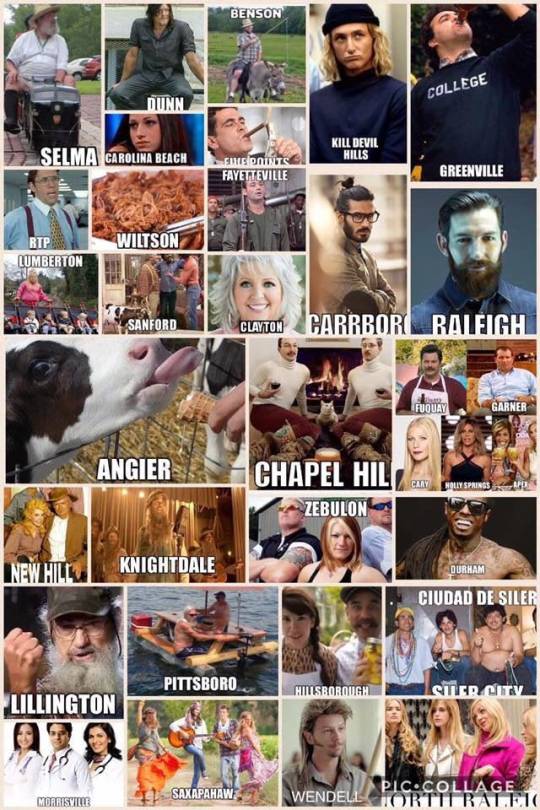
Using downtown as the center of our wheel, people generally divide Raleigh into North and South Raleigh (with distinction given for NW, SE, NE, etc when needed). N.Raleigh is considered generally more upscale, a slice of suburban living interspersed with plenty of shopping centers for families and the moderately wealthy; but it's boring as all hell.
Want some fun? Excitement in the evenings and a more traditional urban experience with bars, night clubs, strip clubs, and more? South Raleigh is your best bet, at the cost of being the "sketchy" side of Raleigh. That kind of place where you'll see a bunch of auto shops that look abandoned but haven't been closed in the past 5 years and there's at least one customer from time to time.
Of course, this is a lot of generalizing but you'll find that it's still mostly accurate. The main exception in this is Capital Blvd, a highway cutting across north and south Raleigh on the eastern half of the city; a high crime corridor that's undergoing some changes in the northern half that have (somewhat) reduced crime but most people will still associate that area with the majority of Raleigh's crime and debauchery.
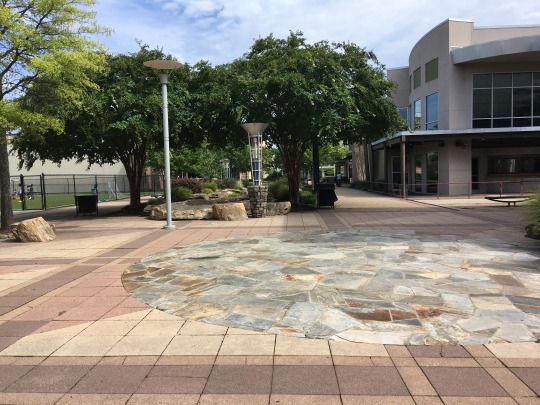
More importantly, is the distinction Raleigh citizens put on inside the beltline versus outside the beltline. The I-440 and 540 highways that wrap around Downtown form the mythical beltline, and to a degree what you have access to. Inside the beltline is the majority of workplaces, stores, and shopping centers; while outside you'll still have these things just to a more... dispersed extent.
North Raleigh actually kinda exemplifies this perfectly. Living inside the beltline, you have access to places like North Hills, Crabtree Valley mall, and Triangle Town Center. Live outside the beltline, like I currently am, and you're looking at 10 to 15 minutes to the nearest sheetz for that late night double hot dog fix.
So for point one: How important is it that you're near things? The majority of apartments and rental properties are in or around the belt-line, but if you want to save some cash on rent checks the cheaper properties are gonna extend your trips a bit.

Next, what can you expect in terms of neighbors? Does Raleigh have a hip party scene full of teens renting cheap apartments and blasting trap music at 3AM?
Depends on where you live
I swear not every point is going to be this, but there's an important distinction this time that affects the type of people your complex will likely have surrounding you; are you in North or South Raleigh?
North Raleigh has a ton of pre-schools, k-12 public schools (Leesville, Hillburn, Lead Mine, just to name a few), and office complexes that make up the job market. As a result the majority of apartment renters in north Raleigh tend to be families with a few small kids or so.
As a result, living off of Glenwood North and Edwards Mill I never had any noise problems from neighbors, the worst being kids playing outside at 3PM sounding like they were being murdered (which apparently is a common thing and I apologize to any neighbors I frightened with ghastly shrieks).
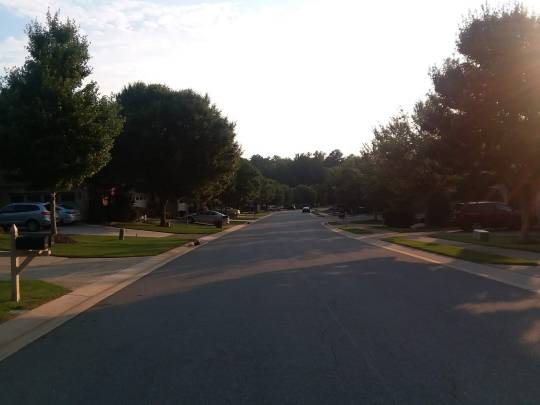
What I did have a problem with, however, was the typical Karen's you hear people complain about online. Renting a property now, we have access to our neighborhood's NextDoor page and it's hilarious sometimes to go on and read the comments, but living at a certain property we had a sort of mini-Facebook for residents
That thing was always full of either people who were moving out looking to sell their furniture or people passive-aggressively challenging each other/the apartment managers with comments about things happening around the complex.
Once I logged in to see one man accuse another, without ever actually accusing someone specific ("I know who did it and they should be ashamed" type post) of putting glass beer bottles under the tires of his truck to try and puncture them. Everyone acts civil in public, but then online they'll stir the pot harder than a chef with a hand mixer.
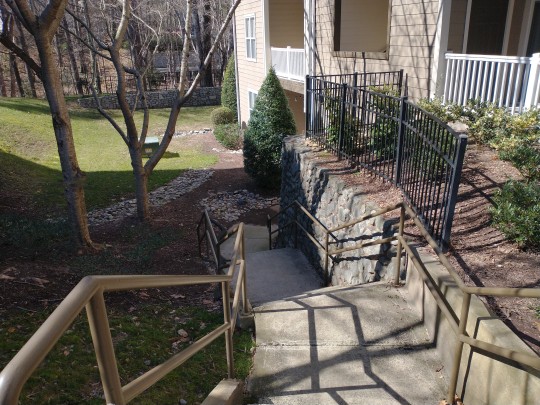
South Raleigh, you have the schools like Shaw University, Meredith, and NCSU; so the people renting down there are typically college kids. You'll see more apartments that cater towards them like University Village or University Woods, but sometimes these places will cater to both college kids and working adults
Avoid these places like the plague, because despite sometimes having a lower cost to live there the neighbors and their shenanigans will drive you up the wall (unless you're the type to join in, then go wild).
I've had friends stay at places like University Village and The Proper (formerly The Vie, formerly Wolf Creek) who've shared horror stories. 3AM parties ending in property damage or vomit in inconvenient places, drug deals not even trying to be subtle, and maintenance workers doing nothing because regardless of the apartment conditions; no school's gonna pull their contract with them unless news articles start getting written.
http://www.technicianonline.com/news/article_898ddf34-82f5-11e7-b3d8-07059d248619.html
https://www.wral.com/vie-at-raleigh-residents-finally-able-to-move-into-clean-units/16887833/
http://www.technicianonline.com/news/article_ea8ed7aa-a092-11e8-a2af-e70af36566d0.html
Otherwise, south Raleigh apartments are largely like north Raleigh apartments; except the crime rate tends to be a little higher and you'll run into more singles and people working full time.

Otherwise, Raleigh apartment culture is like apartment culture anywhere else in the country. You have a mix of apartments catering to those just looking to live versus more ostentatious luxury apartments with fancy pools, exercise facilities, and tech packages to draw people in.
If you're renting in Raleigh, however, do try to get a roommate or two if you can manage. Even with a decent job paying 800+ on a one bedroom one bath apartment can be exhausting at best, but with even one other person that can functionally halve your expenses

So if you're a young professional, or a student, or even if you have a small family, I can safely recommend renting in Raleigh. There's plenty of places that'll accommodate you, and cater towards your needs.
But what about everyone else? Are there people who shouldn't rent in Raleigh?
No
But there are groups who I'd seriously ask to consider their other choices before picking Raleigh as a destination for their new home.

For instance, are you a member of the LGBT community? A trans or non-binary individual? Well then, first off, I want you to know that you're loved and valid. I'm accepting of who you are and appreciate everyone's right to identify how they choose, but I'm not everyone.
Raleigh's bluer than other parts of North Carolina, as I've stated in other blog write-ups, but it's still part of North Carolina unfortunately and as a result, you'll face some challenges.
I doubt anyone's gonna burn a cross in your yard or knock over your mailbox, but Raleigh doesn't offer LGBT protections for housing, jobs, or credit/lending discriminations according to the Movement Advancement Project's website.
We have support organizations for LGBT and NB individuals, plenty of high schools and colleges have Gay-Straight Alliance clubs, and there are numerous businesses downtown that cater specifically to those individuals... but we're also the state that got into a lot of hot water because of a stupid bathroom bill, and our politicians are trying to pass anti-trans sports legislation (because they now magically care about the integrity of womens sports).
By that measure, but to a lesser extent, if you fall outside the Liberal/Conservative political spectrum then be prepared to have no one to discuss your politics with outside of a few sparse networks like the DSA.
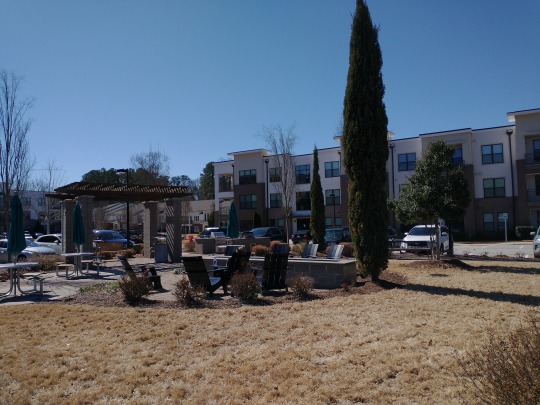
Additionally, if you don't have someone to room with or a significant other to split costs with; you may want to try searching somewhere a little cheaper.
I've said it before and I'll say it again, Raleigh housing prices aren't terrible for a major metropolitan city, but we're not the best prices in the world.
You can get prices on apartments and rentals lower than say, California or New York. However, compared to other parts of NC like Greensboro or Garner; rentals are still a bit much.
On average, a Raleigh apartment can run you about $900 for a single bedroom and a single bathroom. You can find cheaper, but often times there's some risk associated (Crime levels, quality of the room, quality of the property manager, etc.) Looking for a two bedroom? Then your average price is gonna jump up to around $1,200, and this is all before utilities and cable come into play.
It's true a lot of companies around here will pay more than the $7.25 minimum wage, but most low-skilled jobs will pay around 10-11 an hour.
I guess though, that's kind of an obvious statement. "Don't live in Raleigh if you can't afford to live in Raleigh."
I might expand on these thoughts at a later time, but hopefully for now I've given you some food for thought; or at the very least an entertaining read for a few minutes.
I love my city, and I love the friends I've made in it, but the sad truth is that nowhere is perfect for everyone; leastways Raleigh. If Raleigh sounds like the kind of place you'd like to live in, at least take a day trip to come visit and see how things go that way. Visit some stores, meet some locals, and form an opinion off of more than travel blogs and youtube videos.
#raleigh#North Carolina#NC#north carolina#travel#photography#urban photography#city life#city#city of raleigh#advice
6 notes
·
View notes
Text
My Hottest Literary Take is… (Or, Reading as a Caring Observer)
My hottest literary take is…
Long-form investigative journalism now needs / deserves a place in a well-balanced literature diet.
Yes, by that I mean, I think in-depth journalistic reporting—the kind that creates detailed, pages-long articles on specific issues, articles that are well-written and reasoned and balanced with impeccably portrayed personalities—should be collected and published, and found themselves on the library shelves for “literature” nation (world) wide. They should be on summer reading lists, be the tools of torture in English classes. I think its exclusion for being non-fictional and “news”, together with the drastic change in our reading habits over the last decade, is at least partly responsible for the ongoing debate on what makes “problematic” media content (and whether censoring is the proper treatment for them).
First of all, here’s the definition of “literature”:
Merriam Webster:
1a(1): writings in prose or verse
especially: writings having excellence of form or expression and expressing ideas of permanent or universal interest
Oxford (Lexico):
Written works, especially those considered of superior or lasting artistic merit.
These definitions suggest that literature doesn’t need to be fictional. It just has to be writing. Social issues, which investigative journalism dives into, are definitely of permanent and universal interest. Artistic merit is relative, judged against our day-to-day reading material…
Which, these days, it’s social media. We also ingest news briefings online, most of which are indeed brief if they’ve got words at all. The common characteristics of the two is that both encourages quantity over quality; companies have little incentive to encourage their users to stop and digest each article / post / tweet before moving to the next as clicks equate profit. Social media also makes autobiographical writing much more prevalent, in which the poster isn’t expected to maintain an emotional distance to what they are saying. They’re not expected to step away, judge the experience from a distance, find voices contrary to their own.
What this signifies to me is … we rarely come to contact with material written from the perspective of a “caring observer” anymore. I use the term “caring observer” rather than “passerby”, because the latter, to me at least, has much less (if any) emotional investment in the matter being observed. A caring observer is not directly affected by the investigated subject, but they want to know more; and they will know more, they’ll take away something from the experience, but they can still maintain sufficient distance from the subject matter, present the merits and fallacies of the arguments and counterarguments and the people behind them, and invite the readers to make their own conclusions without asserting their own views upon them.
It’s a very unique, precise thing to hold, this Distance — I shall put this word in capital letters — between the investigative journalist and their subject. Stand too far, the investigative power of the work suffers. Stand too close, the balance of the piece may be gone, the scope narrows and loses its universal appeal.
The investigative journalist is a caring observer.
The caring observer can also describe aptly, I think, the relationship between readers of a fictional work and the fictional work itself. And so I believe, too, that an optimal Distance exists between readers of the classically-defined (fictional, aesthetically outstanding) literature and literature itself. It’s the distance that allows us to immerse in the content without drowning in the world—something young children often lack the skills to do; it’s the distance that allows us to walk in the same shoes as the characters while we read and switch back to our own trainers afterward, the distance that allows us to shed tears for the characters and then to say, “even though I’d never be in that situation in the first place” or “even though I disagree with everything that they did”. As I review my beloved media content, my thoughts are, in many ways, much like an investigative news article: that was the situation, the conflict, the people involved, the dilemma they had, why each side failed or succeeded in getting what they wanted. Why it took them so long, why it was such a difficult journey despite this and that…
Oh dear, my heart.
(Do people get emotional over investigative reporting? I do.)
On “problematic” literature. My knee-jerk reaction too, is that no fiction can be problematic enough to justify censorship. The argument is this: characters in fictional world cannot be hurt, and we, as readers, exit the world when we close the book. But when I think harder, some parts of this argument does feel a little shaky. We keep on reading a story because we care. We say we exit the fictional world when we put down the book….but at the same time, many of us read because certain elements of its world stay with us.
And we *want* those elements of its world to stay with us.
This is particularly true for fandomers, who have a tendency, a … passion to keep a shorter distance between us as consumers of a piece of media and the media itself. For better or for worse, we aren’t very good at this Distance thing, at least in the eyes of convention. This also means that as a group, we are perhaps, indeed, more prone to the influence of literature because we tend to invite more of the fictional world into our own. And if we are more prone, then subtle lessons of misogyny, racism, etc would have more potential to invade our RL perspectives. After I considered this, I’ve come to some understanding as to why the “problematic” debate has appeared to be most heated in fandoms, when my intuition had told me otherwise—why would media lovers want to censor media? Or prevent someone else from enjoying whatever media they want to enjoy?
And I’ve started to wonder if the debate these days, on problematic media content and their deserved treatment, really stems from the two sides perceiving very different Distances between themselves and the media they consume, and this Distance is so abstract that neither side can relay it in words. This divide as I’ve observed is somewhat generational, but only because, I’d postulate here, that the older generations may be much more accustomed to reading as a caring observer. This isn’t a question of intelligence, or that one side “can’t read” or the other side “are all pedophiles”. These allegations are tearing fandom apart, taking the joy out of it. It saddens me to see that.
I think, the progress of our world and our experience in it has simply shaped the two sides differently. I’m definitely from an older generation, and “caring-observer” style writing used to be all around me. As a child, I was already in touch with investigative reporting every day from the stacks of newspapers delivered to my home. The internet was around by the time I was in uni, but laptops were still too expensive to own and being an ultimate introvert who enjoyed reading far more than people, I used to collect the newspapers strewn about in the cafeteria (the school always leave one free copy of the prominent ones out there) and read them over meals. I got used to reading long articles from writers who described an initial stranger, an initial strange thing that’d been in no way connected to themselves before, in increasingly vivid, if painful details while withholding judgment—the judgment would be the work I’d have to put in myself. And there was no answer key; there was no one, no social media to assure me if my conclusion was valid or call me out if it was stupid or prejudiced. I made my many questionable conclusions over as many questionable salads; often I turned out to be very wrong. They never hurt me though. I moved on. I got better.
I didn’t know then, but I was learning to read as a caring observer, from something an expert caring observer had written and published.
Turn the clock years later, and our current reading material, including (and perhaps especially) our news, is no longer fertile ground for nurturing caring observers both in reading and writing. As I mentioned before, it emphasizes on almost the opposite: quantity, efficiency, and self-expression. My hypothesis is also this, then: that the internet-era generations are reading in a more “self-realizing” than a "caring-observer” manner, which also renders them more aware of representation issues and moralistic concerns, has not happened by preference, but because that reading material available to them is different. They’re used to reading in first person; they’re used to viewing the written word as an extension of self and writing, in general, as a tool for self-portrayal rather than prying into someone or something that isn’t previously understood.
In other words: for one side, reading and writing is about diving into the unknown; for the other side, it’s about expanding and consolidating the knowledge on what is known, including righting the wrongs of the previously assumed (and there are so many wrongs). If the former is about creating a new language, then the latter is about creating a dictionary for a spoken tongue. Both are valid; both can be equally valuable. The question is: how to get the two sides to not trample on what the other side desires.
This is, however, where my bias lies: I still think learning to be a caring observer is a good thing, especially when it comes to appreciating and enjoying literature. Reasons: 1) this has been said many times before and better—horrible things and people do run this world, and often with a carefully constructed facade; literature not only allows us to engage in these terrors in the safety of our world but also helps us build immunity against these facades; 2) very importantly, it builds confidence. Every time I made a correct call on the true colours of a character, it helps me feel more confident when an actual, suspicious RL person comes along and I have to make a quick character judgment. A major perk of being a caring observer is this: I feel I can care enough to learn about a person, then decide that they’re, after all, not worth knowing. I feel I can walk away without outside validation; I don’t need people to agree with me (which I think is the heart of censoring efforts) because my confidence comes from practice and not the approval of others. This comes partly with age, but more because, I think, I’m not only used to making calls, I’m also used to making mistakes. And I’ve realised that it’s all right. Changing one’s mind when one knows better doesn’t break people. It is far less embarrassing than not changing one’s mind just for the sake of consistency.
Being a caring observer is quite freeing, really.
So what are good learning tools for caring observers in training? Literary works (as classically defined) are candidates, but I feel they’re not always efficient—good learning tools must, first of all, be engaging, otherwise that distance issue is a non-issue to begin with; the reader simply doesn’t care, or they don’t care enough to try to override a pre-formed bias. Many books taught in school are ineffective that way. On the other hand, the material cannot be too engaging because … learning shouldn’t be torture (yes, contrary to what I said before); people should feel free to throw all Distance out the proverbial window for certain Loves of Life.
The reason I propose investigative reporting as “practice material” for readers who’d like to find their Distance, the reason I propose investigative reporting to be included in literary discussions inside and outside classrooms, is because I think they’re particularly suited for this age. I also wish there’ll be some concerted efforts by educators to make them more freely and readily available, since quality ones tend to be behind a paywall (for good reasons) and they tend to be dispersed among different media outlets. These reading material can fill a certain void that the age of fast news and social media has created. The younger generations are much more aware of and engaged in social issues; I think they’ll find passion in these writings. They’re also brilliant at finding information that they need, and so no difficult topic is out of their reach as long as they care. Neither of these can (sadly) be said for my generation. The writing in long investigative reports also tends to be logically clear and precisely worded, which are things often lacking in social media writing as well. More importantly, in contrast to fiction, journalism is about real people, often real people with problematic behaviour. It would help bridge feelings towards these real, problematic people and fictional, problematic people, sort out the feelings for the latter. Can one learn about problematic personalities—real or fictional— while keeping the Distance? Can one draw an intimate portrait of who they are without endorsing their behaviour? Can one enter their psyche and emerge unscathed, and with just a little more knowledge of the complicated nature of human beings? I think the answer is yes.
So here’s my hottest literature take: include investigative journalism in literary discussions. And finally, this may be a good time to confess this: I have neither a literature nor a journalism background, so my hottest take can only be considered lukewarm at best. 😛 My need to write something aside—I’ve neglected writing for too long—I just think… maybe, just maybe, I can offer just a little something for people to think about...
3 notes
·
View notes
Text
Player motivations
TL;DR If you want to talk about what sort of content a developer should focus on in a MMO, go read this first.
One of the perennial flashpoints I see in discussions of player types in FFXIV, and indeed MMO players in general, is the division between "casual" and "hardcore", and acting as though this is the only categorization that matters. This is so prevalent, and yet still so wrong that I cannot understand why it has spread so much.
It would be much more helpful if everyone involved knew about the other models for player motivations and behaviour, because at least then we could have some variety in our discussions, rather than simply a dichotomy between "cares a lot about mechanical achievements" and "doesn't care at all about mechanical achievements".
As usual, the standard warnings apply: the map is not the territory (ie don't assume that the theory describes the truth in all its details), and use the right tool for the job (ie don't force everything into the pre-conceived notions of how Things Should Be, no matter how ill-fitting or irrelevant).
Chances are you've heard about Richard Bartle's Taxonomy Of Player Types. It's the well-known four categories of players in MUDs, also applicable to MMOs. Bartle has proposed a slightly expanded eight categories, basically further dividing each of the original four categories into "explicit" and "implicit", but I don't think it's as well-known, because it didn't get turned into a popular online questionnaire. (I'm not going to go into the expanded categories because I'm not as familiar with them.)
Personally, I don't agree with some of Bartle's conclusions, but for a very basic starting point into what I'm trying to say in this post, it works out, and is certainly simpler than Nick Yee's theories, which I agree far more with. It's certainly more nuanced than "casuals vs hardcore".
The four categories are:
Achievers: Likes to obtain "points" or "levels" or some such concrete measurement of "success" in a game. This is probably what most people mean when they talk about the "hardcore" side. Raiders who raid for the sense of accomplishment, or to get the gear, or for the prestige of having cleared the raid, or any combination of the above: a UCoB or UwU raider who just wants the titles and weapon glamours is firmly in this category.
Explorers: Wants to learn all there is to learn about a game, be it mechanics or lore. The theorycrafters who do so for the sake of doing so, rather than because they want to get an advantage out of it fall into this category, as do the loremasters.
Socializers: Plays multiplayer games for the other people. These include roleplayers and "social" FCs and linkshells. Also tends to get attached to NPCs who they like, and often gather like-minded people to discuss them and the game. Generally the meat of the "community", and certainly the ones who seek out and make said communities in social networks. This is usually what people mean when they say "casual".
Killers: Probably better named "competitors". Which is a more descriptive term, since they like competition with other players, both friendly and otherwise. PvP is the obvious one, but marketboard control is another common activity. They're not content to just be the top, they want to be better than you (speaking of a general "you").
Readers who are paying attention might have noticed a drawback to these categorizations: they're categories, which means that under this model, a player is a Socializer or an Achiever or whatnot, and they are defined as being a Socializer or Achiever. Bartle claimed that a player is generally only one primary category, and all other motivations are secondary. Most online tests at least allow for the possibility of, say, 70% Achiever and 30% Socializer, but it's still awkward trying to fit multiple motivations into this model, especially since they allocate a fixed number of maximum "points" or "percentages" to be spread over all the categories. A pie chart, rather than a bar graph. I suspect this is because MMORPG playstyles are different enough from MUD playstyles for this to be an issue.
Hence, I'm far more inclined to Nick Yee's paper on Motivations Of Play In MMORPGs, where he suggests a component model rather than a category model. In other words, you can have multiple different motivations in playing the game, and a given player can have any and all combinations of components.
There are ten components, which may seem like a lot, but I find it useful to divide them (as Yee does) into three main components and ten subcomponents: Achievement (three subcomponents), Social (three subcomponents), and Immersion (four subcomponents). While I'll be summarizing the components here, it's probably much easier and simpler to go read Yee's paper, since he describes it well enough.
Achievement
Advancement: The "Bartle Achiever" type. Wants to accumulate points and power and prestige, whether explicit in terms of gear or gil, or implicit in the social acknowledgement from having a rare glamour. Yee mentions that this can come from both the Skinner Box micro-rewards of the grind, or the desire to reach an "end goal".
Mechanics: Half of the "Bartle Explorer" type, this time focusing on the mechanics part of it; Yee mentions that he couldn't find a "pure Explorer" in his research, but when he split it into two, suddenly they're everywhere. People who calculate Best In Slot and materia melds and the exact thresholds for stats.
Competition: As mentioned, competing with other players, either in fair and sanctioned matches, or unprovoked and impromptu attacks. Again, the primary idea is to "beat" and "defeat" another player.
Social
Socializing: More specific than the "Bartle Socializer" type, these players like to meet and chat with other players, usually in large and varied communities. "Social FC" and "casual friendly linkshell" advertisements are usually aimed at these players. In more pronounced cases, the MMO is a fancy chatroom with a game attached to it.
Relationship: More in-depth than the Socializing component, as players looking for Relationships are, well, looking for relationships, long-term and sustained and meaningful. Friends who act as a static duo or trio or light party, for example. Sometimes these are people whose relationships with their friends are carried over from other games and communities, eg RL friends or partnered streamers.
Teamwork: They just want to play together in group content. Players who like Teamwork want to do content in a party, be it a static or a PUG. Probably easier to illustrate with the opposite, ie low Teamwork component, who are the much-discussed soloers in MMOs.
Immersion
Discovery: The lore half of the "Bartle Explorer". Loremasters, map explorers, those interested in the setting and story and the world as a world, rather than simply as a game server with enemies to hit.
Roleplaying: Wanting to have their character be a character in the world, rather than merely a user avatar. They want to have their characters fit into the world setting, and create a backstory and story for their characters. The actual act of roleplaying in-game might not even be that prominent, since the Roleplaying component can manifest in fanfics of their character on other sites.
Customization: Glamour is the true endgame. Which I think sums up this component neatly.
Escapism: RL is stressful and annoying, and so they play the game to relax and forget about their worries for a while.
As can be seen, it's much easier to combine different components in any amount, rather than simply "you must be focused on Achievement or Social, but not both". There are probably much more refined and in-depth studies out there that fit the current state of MMO players more, but I haven't learned of any yet.
So what does this all mean? I am posting this because I want players to stop dividing activities and interests into "casual vs hardcore". A player can be interested in both "casual" activities like roleplaying, and "hardcore" activities like trying to maximize DPS uptime as a Healer or Tank. It's possible to be a player who likes chatting about the game to friends and acquaintances, and also knows the best way to optimize rotations.
However, the fact that any combination of components is possible means, tautologically, that any combination of components is possible. And so trying to force a playstyle into another will just appeal to people who have that specific combination and levels of those components, while alienating people who don't have them.
The usual example is in suggesting story content be put into Savage raids. The reasoning often given is from the viewpoint of the Achievement main component, in that they are trying to "convince" "casual" (ie Immersion component) players to "get good" enough to clear Savage, just so they can see the story, and in the meantime provide a larger pool to draw Savage raiders from. This will piss off players who have little interest in the Achievement component, while not actually doing much for the players who have little interest in the Immersion component. The equivalent would be to force players to be in a FC of a certain size (Social component) before they can even enter Savage raids (Achievement component). Players can meet the requirements, but they're not going to be happy about it, and most will try to find a way to circumvent the spirit of the rules.
These classifications are all descriptive, not prescriptive, as both Bartle and Yee (and others) warn many times in their presentations. If you create content that is aimed at players who score high in both Achievement and Immersion, and then the content is played by players who score high in both Achievement and Immersion, this doesn't mean your playerbase is entirely Achievement and Immersion; it just means you self-selected for those traits, and everyone else who isn't interested have gone away.
I want players to understand that there are many different motivations of play, and not just assume that what they are playing for is what everyone plays for, or should be playing for. I want players to understand that this is not a "them vs us" debate, where players must be one or the other. I want players to understand that just because someone scores high in a given subcomponent, this does not mean they will score high in every other subcomponent, or that they will inherently score low in an "opposing" component.
This is a hope that everyone will have some insight into why another player may not like all the same things they do, and yet still share some of the same interests.
5 notes
·
View notes
Note
Have you noticed a trend or a pattern like certain ships or ship dynamics attracting certain kinds of people? Im not trying to start wank. Im curious bc ALL my rl friends ship my notps like Bill & Sookie over Eric & Sookie. Bangel over Spuffy. Bibro over destiel. And since I have emotional/mental problems, i worry its me bc Im drawn to or I romanticize dysfunctional unhealthy relationships. (Btw my fave Spuffy argument is how Angelus and Spike viewed their souls. A curse vs atonement)
Hi :)
Firstly I want to say please don’t worry about things you like! If you like it you like it, unless it’s causing you or someone else harm it’s all good :)
Yes I have noticed a link, I’ve been discussing it recently actually with friends, how there seems to (generally not always but generally) be a Bangel/Sookie x Bill/Wincest divide v Spuffy/Sookie x Eric/Destiel in shippers.
It comes down to why you like things I guess and it does totally make sense to like either an obvious
1.Bangel/Sookie x Bill/Wincest: “first love” or just... first on screen, kind of thing that is quite soulmate-y and including a power imbalance, a kind of “save me prince charming” thing, dark and exciting to watch, the word I hate passionate where what it really means is emotionally abusive and even quite depreciative, with an element of one (usually the woman) being young, naive and wide eyed (the kind of thing that often is pushed on teenage stories because “teenage girls love this” well yeah cos it’s all we got when I was a teen and urgh no more thank you! I’m looking at you Twilight/50 shades! I don’t want this for my teenage girl if I have one!).
versus
2. Spuffy/Sookie x Eric/Destiel: something that is much more long term in coming, takes shape over time, is deep in the narrative, ends up being really quite healthy in terms of real life comparisons with a more equal power balance, making the “male figure” far more soft and giving the “female figure” more power in a het relationship and in a same sex still with a similar meeting in the middle concept, giving them more agency in the relationship (especially the woman when it’s het as usually she’s younger and in awe of the first boyfriend but older and more world wise by the time it comes to the second), giving her far more choice in the matter, totally not soulmate-y at all but about them growing up.
This is just a random person opinion, based on what I’ve seen. Though I have spoken to people where we discussed the way Buffy/Angel as shows finished around the time SPN started and how the exact same online dialogue and terms - eg “delusional”, “unhealthy”, “pandering” “the show is going to shit” - started coming about in SPN fandom and clearly were the same people who were just as vile about SPN as they were Buffy/Angel so I do think there is a clear link as well as the one I had already noted psychologically:
https://tinkdw.tumblr.com/post/171169423912/rahirah-tesla1321-tinkdw-i-wonder-if-the
77 notes
·
View notes